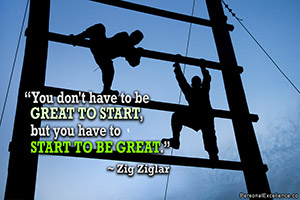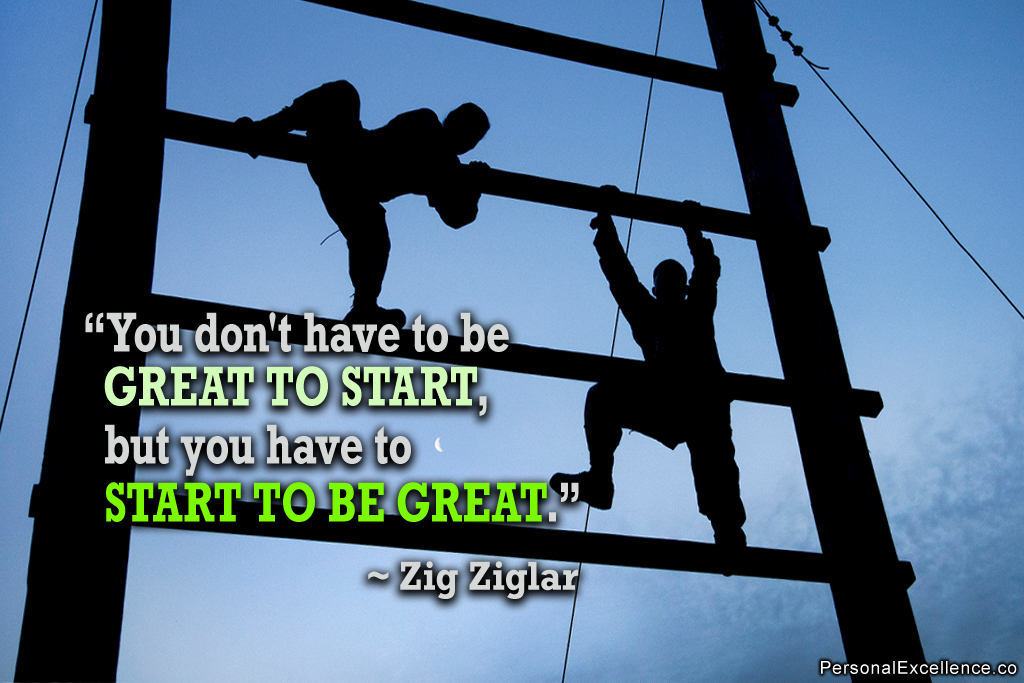
(Image: steve)
Are you a good conversationalist? What makes someone a good conversationalist?
Being a good conversationalist is important be it in business, social situations, or dating. Over the past years, I’ve met a lot of people in different contexts. During my seven-month trip across the U.S. and Europe last year, I met over hundreds of new people. Networking events are a norm to me as a business owner. My dating immersion has put me in many different date situations.
Whenever I meet new people, I find that the quality of our interaction is tied to two factors: (1) the compatibility of our values, and (2) our conversational skills.
I’ve met people who are great conversationalists and we would hit it off right away, with endless things to talk about. The energy is undeniable. :D These people are a great joy to speak with because they are self-aware and sensitive.
I’ve also met people who are difficult to converse with. I would ask many questions which are returned with mono-syllabic responses, after which the conversation trails off into awkward pauses or turn into a monologue. Unfortunately, conversing with them can be quite painful.
This reminds me of someone whom I met in New York last year. While he was highly intelligent (he was a senior analyst in a MNC), he didn’t seem to have a very high EQ. He kept asking me questions in a very interrogative way and kept probing into my life, while deflecting all my questions about him and not reciprocating the exchange. I also recall a negative conversation I had before with a very combative person. He kept putting down my view points and argued why I was wrong and why he was right — even though I wasn’t trying to argue. Both encounters left me with a sour taste. Needless to say, I didn’t stay in touch with either of them.
How To Be a Great Conversationalist: 10 Essential Rules
Given that conversational skills is a must-have in today’s world, I thought it’ll be great to write about how to be a great conversationalist, since I have not written about communication before.
While there is much for me to learn in communication, I’ve been told by friends, acquaintances, and associates that they enjoy speaking to me, and they find themselves sharing personal things that they don’t share with others. I also have drawn-out conversations that can go on forever if not for other appointments.
I don’t think there are any “tricks” or shady techniques you have to apply to be a great conversationalist. Below are 10 timeless rules I apply to all my conversations:
- Be genuinely interested in the person. Who is this person? What’s on his/her mind? What does he/she enjoy doing? What motivates him/her in life? These are the questions I have for every single person I meet. Since people are part of my life purpose (to help others achieve their highest potential), my genuine interest in people, from who they are to what they do, comes naturally.
Having a genuine interest, not an artificial one, is essential to a great conversation. Even if you apply rules #2 to #10 of being a great conversationalist, the conversation will still fall flat because there is no driving force behind the exchange.
So have a genuine interest in everyone you speak to. If you are not interested in the other person, then why speak to him/her to begin with? Move on to someone you really want to talk to. Life is too short to be spent doing things you don’t like.
- Focus on the positive. Go for the positive topics. This means rather than talk about past grievances, discuss future goals. Rather than talk about the coffee that spilled on your table this morning, talk about the movie you look forward to watching later this evening. It’s okay to talk about “negative” topics (topics that trigger negative emotions) once in a while, but only when you feel it is okay with the other party and when it has a specific purpose (such as to get to know the other person better or to bond with him/her).
During your conversations, adopt a forward-thinking mentality. Less complaining, more solutions. Less judgment, more empathy. Doing the latter will make you a more enjoyable person to speak to. Doing the former will turn you into an energy vampire.
Principle #4 of 10 Timeless Principles To Be Happy teaches you how to see the positive over the negative in every situation.
- Converse, not debate (or argue). In the article opening, I mentioned I once had a conversation with a highly argumentative guy. Rather than treat the conversation as a fun, enjoyable exchange, he kept picking on my comments and turned them into elaborate me vs. you arguments, when I didn’t care either way. Needless to say, the conversation quickly dwindled into nothing. His combative and demeaning attitude was so draining that I didn’t even want to speak to him after 15 minutes.
A conversation should be an avenue where opinions are aired, not a battleground to pit one’s stance against another. Chat, discuss, and trash out ideas, but do so amiably. There’s no need to have a conclusion or agreement point in every discussion; if a convergence has to be met for every discussion point, the conversation becomes very draining. Allow things to be left open if a common point can’t be achieved.
- Respect. Don’t impose, criticize, or judge. Respect each other’s point of view. It’s fine to express your opinion, but don’t force it on them. Respect each other’s space — don’t encroach on the person’s privacy unless you guys already know each other way. Respect each other’s personal choices — don’t criticize or judge. To do the opposite in each instance would be to impose yourself on others when it isn’t your place to do so. Remember, everyone has the right to be him/herself, just as you have the right to be yourself.
- Put the person in his/her best light. Always look for ways to make the person look good. Give credit where credit is due. Recognize talent where you see it. Praise where appropriate. Allow the person to shine in his/her own light. A lot of people don’t recognize their personal ability and it’s up to you to help them do that. Be their guide; be their conduit to love.
- Embrace differences while building on commonalities. Everyone is different. At the same time, there are always commonalities between people. Embrace the differences. They make each of us unique. Agree to disagree if there are clashes in ideas. As you talk to the other person, look for commonalities between you and him/her. Once you find a common link, build on that. Use that as a way to learn more about him/her, which will help you find new commonalities that you can further build on.
- Be true to yourself. Your best asset is your true self. Embrace it and let it shine. Don’t cover it up. It’d be pretty boring if all you do is mime the other person’s words during a conversation; there wouldn’t be anything to discuss at all! Be ready to share your real thoughts and opinions (not in a combative manner though — see #3). Be proud of what you stand for and be ready to let others know the real you. Read: Finding Your Inner Self
- 50-50 sharing. I always think that a great conversation should consist of equal sharing by both parties. It may be 40-60 or 60-40 depending on the circumstances, but both parties should have equal opportunities to share and contribute to the conversation.
This means, be sensitive enough to pose questions to the other person if you have been talking for a while (see #9). It also means that you should take the initiative to share more about yourself if the other person has been sharing for the most part. Just because the person doesn’t ask you questions doesn’t mean you can’t share; sometimes people don’t ask questions because it is not in their culture to do so, or because they think it may be invasive.
- Ask purposeful questions. Questions elicit answers. The kind of questions you ask will steer the direction of the conversation. To have a meaningful conversation with the other person, ask meaningful questions. Choose questions like, “What drives you in life?”, “What are your goals for this year?” and “What inspired you to make this change?”, over “What did you do yesterday?” and “What are you going to do later?” Try the questions in this list for a change: 101 Important Questions To Ask Yourself.
Some people may not be ready to think about conscious questions and that’s fine. Start off with simple, everyday questions as you build a rapport with him/her. Then, get to know him/her better through deeper questions, when you think he/she is ready to share.
- Give and take. Sometimes people say pretty weird stuff during conversations. For example, a critical comment here and there, a distasteful remark, a bad joke. Don’t judge them for those comments. Give them the benefit of doubt (unless clearly proven otherwise). I myself make random oddball comments sometimes which leave me wondering why I even did that. Usually I just laugh or shrug it off; it makes for funny conversation banter.
What’s a Great Conversationalist to You?
What do you think makes a great conversationalist? How can you apply the 10 rules to be a better conversationalist? Be sure to check out the other articles in the interpersonal communication series below!
Get the manifesto version of this article: 10 Rules of a Great Conversationalist [Manifesto]
This is part of a series on interpersonal communication.
- The Secret To Meaningful Social Relationships (How to Remove Social Anxiety)
- How to Make Small Talk with Anyone in 5 Easy Ways (Examples Included!)
- 10 Rules of a Great Conversationalist
- Are You Keeping People Away With Your Body Language? (And 10 Tips To Improve Your Body Language)
- How To Make a Good First Impression









 Thanks for reading. If you like my free articles, join my private email list and get my latest updates and articles sent right to your inbox.
Thanks for reading. If you like my free articles, join my private email list and get my latest updates and articles sent right to your inbox.